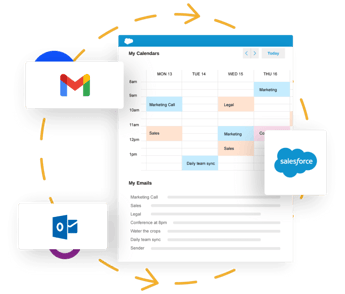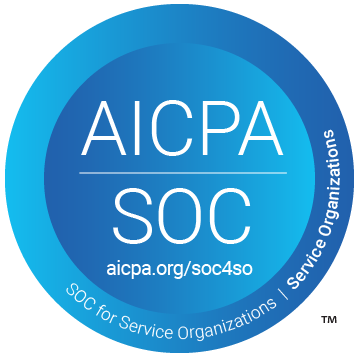- Solutions
-
Products
-
Resources
Sales Automation Tools | Cirrus Insight by Kristi Campbell View all Blog Posts >Get the App, Get the Sidebar, & Get Your Trial Going HereUnleash limitless growth opportunities by partnering with Cirrus Insight.
- Pricing
Filter By:
- All topics
- Sales Intelligence
- Sales Productivity
- Salesforce
- Sales Strategy
- Sales Prospecting
- Book More Meetings
- Best of
- Company News
- Product
- Sales Leadership
- CRM Admininstration
- Sales Metrics
- Supercharge Sales Activity
- Team Scheduling
- Admin
- serious insights
- Prospect Smarter
- Sales Activity Data
- Sales Forecasting
- Scheduling Solutions
- Prospect Faster
- Auto-Sync Everything To Your CRM
- Chrome
- Comparison
- Email Tracking
- Financial Services
- For Admins
- Getting Started
- IT & Security
- outlook
Subscribe to our Blog for the Latest Insights
Join our blog community to stay informed and receive fresh content and actionable tips directly in your inbox.
Jobs After-Sales: 13 Common Career Changes For Salespeople in 2025
Career changes, among salespeople or otherwise, are fairly common nowadays. In fact, they’re more common than the alternative — working for the same company and/or in the same role for 50 years.
Studies have shown that the average person changes jobs 12 times during the course of their professional career. It’s not atypical to spend five years or less working in one role before transitioning into another.
So, what gives? Why are people much more apt to step out of their comfort zones and into something new?
What are the Most Common Reasons Why People Change Careers?
- Higher pay
- More flexibility
- Improved work-life balance
- Less stress
- Relocation
- Better benefits
Would any of the above motivate you towards a transition away from your current role in sales?

The Most Common Career Transition is... Sales
While sales had one of the highest numbers of people transitioning out of it, according to the survey, sales also had the highest number of people transitioning in. This was attributed to the high number of sales positions available since most companies have traditionally relied upon some level of sales or business development for growth.
Sales Development Representatives ranked number three on LinkedIn’s list of the Top Emerging Jobs, for example. Although an entry-level role, it’s still incredibly popular among recent graduates to seek out positions as a sales associate or account manager in order to gain experience in the professional world and build valuable skills.
The Most Common Paths for Former Salespeople
If you don’t feel like staying on the sales merry-go-around (prospecting, qualifying, closing, repeat), then there are plenty of alternatives worth considering.
Some people are born salespeople, or they grow into it — learning to love the chase, master their productivity, and close more deals in the process.
Others are less enthused by the process. It’s a constant grind of relationship-building and deal-making. And if you want to switch gears, it can be difficult to set out on a different path, since many companies don’t offer the same growth opportunities found in other roles.
When salespeople do transition out, they tended to fall in line with one of these 13 career paths:
1. Marketing Specialist
Sales professionals often transition into marketing roles where their deep understanding of customer behavior and messaging helps drive targeted campaigns and lead generation.
2. Corporate Strategist
Former salespeople bring frontline insights into market trends and customer needs—valuable for shaping high-level business strategies.
3. Consultant
With their problem-solving mindset and client-facing experience, many sales professionals find success advising companies on sales processes, customer journeys, or go-to-market strategies.
4. Operations Manager
Focus on streamlining processes, aligning teams, and improving efficiency across departments.
5. Business Owner
Many sales pros start their own businesses—leveraging their network and sales acumen to grow quickly.
6. Retail Salesperson
More flexible hours, a change of pace, or to pursue a more product-focused sales experience.
7. Customer Success Manager
Leverages relationship-building and product knowledge skills to drive retention and growth.
8. Account Manager
A natural progression that focuses on nurturing existing client relationships.
9. Sales Trainer or Coach
Ideal for experienced sales reps who enjoy mentoring and developing others.
10. Product Manager
Uses market feedback and customer insights to shape product development.
11. Recruiter or Talent Acquisition Specialist
Applies people skills and persuasion in a new way.
12. Real Estate Agent
Sales-heavy role with more independence and commission-based income.
13. Customer Experience Manager
Focuses on improving the buyer journey using insights gained from frontline sales work.
Other Career Trends for Sales Professionals
LinkedIn members who used to be in the military had the most distinct career transitions — going into everything from business ownership to corporate strategy. Other careers that offered plenty of transition opportunities were listed as “community outreach coordinator” and “program analyst”.
Web developers, paralegals, and physicians appeared to stay within their lanes when transitioning throughout their careers — to software engineers, lawyers, and university professors, respectively. In other words, if you’re in a highly specialized field, you’re unlikely to be changing paths anytime soon.
This leads way to the recent rising trend of generalization. When you’re a generalist, your focus on soft skills is still considered valuable in the areas of management, leadership, and strategy. Overall, it’s also easier to transition and remain relevant across a variety of fields and job roles.

Getting Out of Sales: Creating a Seamless Transition Plan
Perhaps you've decided that sales are no longer the right fit for you. The next step is creating a plan to transition into a new field.
1. Figure out why
Jot down all the reasons why you don’t like your current job and why you would like to change careers. This is important so you don't transition into a new role with similar qualities you disliked about your previous job.
2. Conduct a transferable skills audit
Ask yourself the following questions to discover the skills and qualities you can take to a new profession:
- Why did I get into sales in the first place?
- What sales skills made me good at my job?
- What do I enjoy doing most about my current job? How about the least?
- How would my co-workers describe my work style? What are my strengths/weaknesses?
3. Filter job roles that align with your skills
Find out your decision-making criteria based on step #2 to filter the type of jobs that would best suit you.

4. Search job postings
You can use several online job sites/platforms for a better job search or journals and newspapers to get relevant information to learn more about the companies and positions that you want. The compensation, career growth opportunities, and the minimum qualifications for the job you are most interested in are important to take note of as well.
5. Adjust your resume and cover letter
You should match your resume and cover letter with the transferable skills audit that you have completed. Check online tips on the job you will be applying to write a compelling cv and cover letter as well.
Why Salespeople Can Easily Make the Leap Into Other Careers
The job market has seen its fair share of ups, downs, and changes since the pandemic began. For starters, there is some economic uncertainty which has people looking for new jobs at an extremely high rate.
Soft skills, as we mentioned before, are also in high demand — despite the prominence of technical job openings. For the sake of better communication, collaboration, leadership, and time management, more and more companies are prioritizing soft skills among new hires.
Customer-success, marketing, and sales-related jobs are all still in high demand. Especially because customer experience is put on a pedestal for those looking to drive traffic, interest, and conversions online. Sales Manager was found to be one of the top 30 most promising jobs going forward.
Alternatively, there’s growing fear among these same professionals that AI and automation will soon make their jobs obsolete. As technology advances, skillsets are being tested and required to keep up with the changes.

Salespeople, whether they adapt to said changes or otherwise, are not pigeon-holed into one career for the rest of their lives. It’s actually quite the opposite, as studies predict that those with sales and quota-carrying experience will be some of the most highly effective workers in the future of work.
This is tied back to a few things: entrepreneurial spirit, relationship-driven mentality, and soft skill development. People in sales tend to be go-getters. They build a personal brand, see a goal, chase it, and motivate themselves to achieve it. It’s why they often make great CEOs.
From a relationship standpoint, salespeople have to hone their skills in communication and teamwork in order to succeed. And those who truly excel at their craft learn to maintain high levels of stability and orderliness throughout their sales process. When there are so many stages and moving parts to keep track of, reps have to stay on top of their efforts in order to progress them forward.
All of these skills are applicable across a variety of career paths. Especially when paired with the gig economy and the ease through which you can pursue an education online nowadays.
From project management to computer science, there are plenty of online degree routes worth taking for those interested in a new challenge. For sales team members who use Salesforce, Trailhead is another excellent resource for retooling skills and up-leveling your career.
Frequently Asked Questions:
1. What is sales burnout?
Burnout is a condition of emotional, physical, and mental fatigue that is triggered by intense and prolonged stress. A sales position is susceptible to stress and overwork can eventually lead to burnout. It happens when you feel frustrated in high-pressure quotas, unable to satisfy constant demands, and others simply don't have the character to excel in sales.
2. When is it time to leave a sales job?
To decide if it is time to leave your sales career, there are common red flags that you can use: the first one is underpaid, especially, if you have tried to negotiate your salary and your company does not compromise with you for a more favorable compensation. Second, it won't take long before you start to feel dissatisfied if you don't have career growth. Finally, if your job ambitions change and your current employer is in the middle of a cultural transition, and you feel strongly that the changes are going to be negative. It could be the best time for other avenues and career paths to be explored.
3. What sales skills are transferable?
Transferable skills are skills and abilities that are important and beneficial through various areas of life, socially and professionally. Communication, negotiation, preparation, coordination, problem-solving, and the ability to work in a team are the most common sales skills that are transferable to daily life. If you have these types of skills, you will be able to get employed easily.
4. What careers can I transition into after sales?
Sales professionals often move into roles like marketing, account management, customer success, consulting, product management, or even entrepreneurship. These paths leverage the core skills developed in sales—communication, persuasion, strategy, and relationship-building.
5. How do I explain a sales career change in an interview?
Focus on the transferable skills you’ve gained—such as resilience, client communication, strategic thinking, and hitting performance metrics. Emphasize how those strengths align with the role you’re applying for and be honest about your desire for new challenges or growth opportunities.
6. Is it okay to leave a sales job if I’m good at it but not happy?
Yes. Being good at sales doesn’t mean it’s the right long-term fit. Job satisfaction, mental health, and alignment with your personal values and goals are just as important. If you're feeling unfulfilled, it's perfectly valid to explore a new path where your strengths can still shine.
7. Can I get out of sales without starting over completely?
Absolutely. Many careers welcome sales experience, and you don’t have to start from scratch. Transitioning into adjacent fields like marketing, business development, or customer success lets you leverage your background while building new skills.
Eliminate CRM Friction
Cirrus Insight free you from trivial CRM tasks and wasted opportunities.






